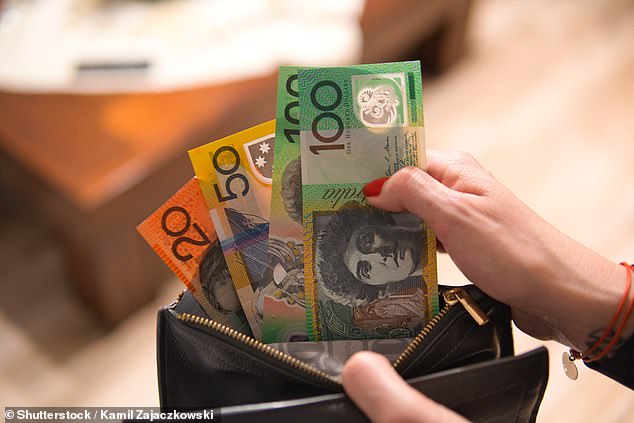Australia’s central bank wants to remove surcharge fees on both debit and credit cards in a move it expects will save consumers more than $1billion.
The Reserve Bank of Australia’s review of merchant card payment costs recommends the fees be scrapped on EFTPOS, Mastercard and Visa card transactions as they don’t help consumers make more efficient payment choices.
Lowering the cap on interchange fees paid by businesses – another recommendation of the paper – would also save Australians $1.2billion.
An interchange fee is paid by a business to a customer’s card issuer when a transaction occurs.
The bank’s proposals go further than what the federal government has previously suggested.
Treasurer Jim Chalmers had said the government was prepared to ban fees on debit card transactions from the start of 2026, but the RBA has included credit cards.
Consumers are estimated to pay $1.2billion in surcharges on payments each year, the equivalent of $60 per card-using adult.
Scrapping surcharges would also mean consumers would not need to switch between payment methods to try to avoid a fee, the report stated.
RBA Governor Michele Bullock said both consumers and businesses would benefit from the proposal as fewer Australians make cash payments.

The Reserve Bank of Australia has suggested scrapping debit and credit card surcharge fees
Customers would avoid paying surcharges, while businesses would no longer be forced to face the high costs associated with accepting card payments.
‘We think the time has come to address some of these high costs and inefficiencies in the system,’ she said.
‘The payments landscape is always evolving, and it’s critically important that we keep pace to ensure it remains safe, competitive and efficient.’
The RBA proposed removing its own prohibition on ‘no-surcharge’ rules to achieve scrapping the fees.
It expected the card networks would then follow by implementing ‘no-surcharge’ rules based on historical experience and arrangements in other jurisdictions.
If that did not occur, the RBA would recommend the federal government introduce legislation to ban surcharge fees.
Lowering the cap on interchange fees for businesses is predicted to benefit small businesses the most, because they often pay higher fees.
The central bank found small businesses would be $185million better off under the changes, with 90 per cent of them benefiting.
Better transparency achieved by forcing card networks and large acquirers to publish the fees they charge has also been recommended, to foster greater competition between the networks.
Ms Bullock predicted the proposals would spark much discussion particularly among businesses that do surcharge, prompting a six-week consultation period on the plan.
Any changes won’t kick in until July 2026.









